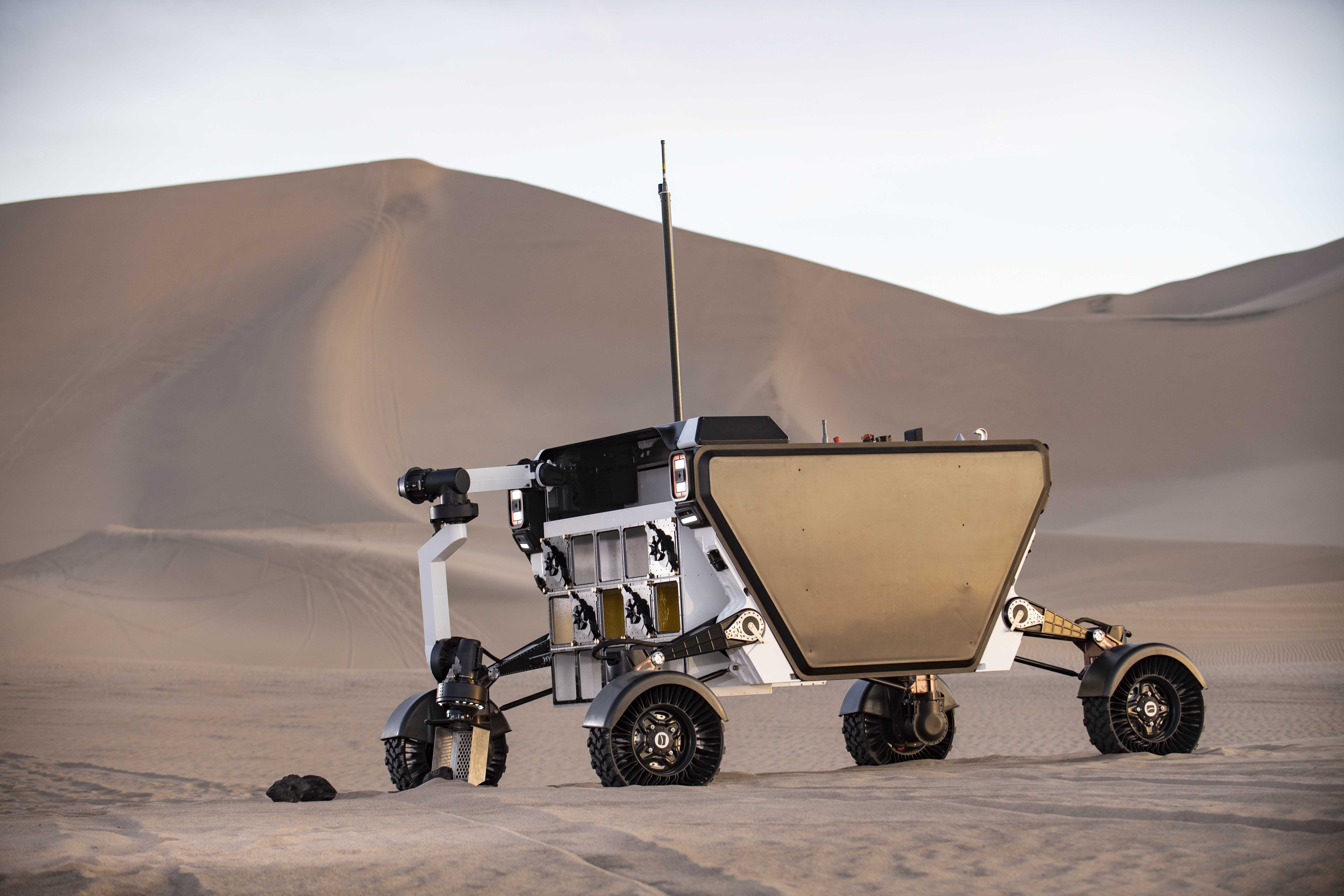Hello and welcome back to Max Q! For my American readers, I hope you had a restful Thanksgiving with loved ones.
In this issue:
- Venturi Astrolab’s first moon rover mission
- News from OneWeb India and more
It turns out a NASA contract isn’t the only way to fund a mission on the moon.
Lunar technology startup Venturi Astrolab announced last week that its first moon rover mission will bring in over $160 million in customer contracts. That mission, aptly named Mission 1, will launch and land on a SpaceX Starship as early as mid-2026.
The contract value is spread across eight customers, including:
- Argo Space Corporation, which will deploy a demonstration payload to advance the startup’s goal of harvesting water from lunar regolith;
- Astroport Space Technologies, which will demonstrate a sieving and grain separation technology, with the aim of using this tech to manufacture bricks out of lunar regolith;
- Avalon Space, which will “conduct a series of science, exploration, and sustainable development experiments focused on the emerging lunar economy,” according to a statement;
- Interstellar Lab, which will deploy two small plant pods on the lunar surface and measure the impact of the moon environment on their composition and structure;
- LifeShip, Inc., which will deliver a capsule containing a DNA seed bank and archive of Earth’s biodiversity to the lunar surface as an “off-world backup of our biosphere,” CEO Ben Haldeman said.

Image Credits: Venturi Astrolab (opens in a new window)
More news from TC and beyond
- Blue Origin’s New Glenn rocket will apparently take to the skies “around this time next year” carrying a payload bound for Mars.
- OneWeb India, the local subsidiary of low-earth orbit operator Eutelsat OneWeb, has received the necessary approval from the country’s newly created space regulatory body to launch its commercial satellite broadband services in the South Asian nation.
- SpaceX’s second Starship test flight left significantly less debris around the surrounding area than the first mission, according to an assessment by the U.S. Fish and Wildlife Service.
- Ursa Major is going to 3D print solid rocket motors, a new business line for the company best-known for its rocket engines.
Max Q is brought to you by me, Aria Alamalhodaei. If you enjoy reading Max Q, consider forwarding it to a friend.



